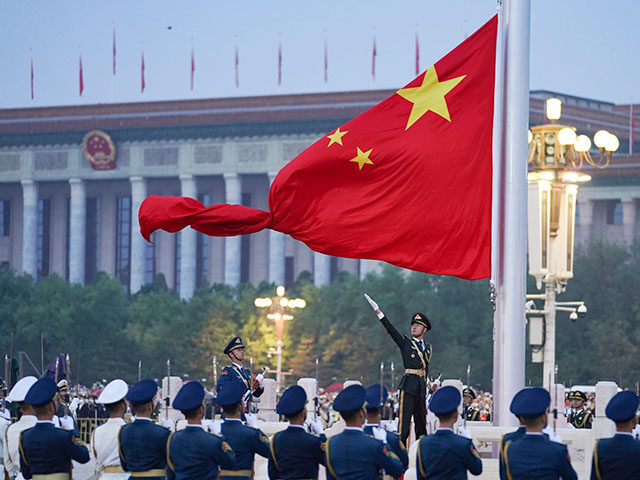United States intelligence officials created a “new framework and language guidelines” when talking about China so as not to offend employees of Asian and Pacific Islander heritage, according to a recent newsletter by the Director of National Intelligence (DNI)’s Intelligence Community Diversity, Equity, Inclusion, and Accessibility Office.
“In the last few years, IC employee resource groups advocating for people of Asian and Pacific Islander heritage have been particularly successful in creating a new framework and language guidelines for how we talk about the People’s Republic of China,” wrote the editor-in-chief of the newsletter, whose name is redacted.
“This work is paving the way for other groups to change language style guides and shift our work culture to talk, write, and think about foreign governments and entities in a way that is more nuanced and rooted in evidence,” she added.
Anti-Woke Caucus Chairman Jim Banks (R-IN), a Navy veteran and chairman of the House Armed Services Military Personnel Subcommittee, criticized the changing of language when discussing China, the U.S.’s top adversary. He said in a statement to Breitbart News:
The Biden administration determined the DOJ’s China initiative to root out and prosecute CCP spies was insensitive so they shut that down and now our intelligence officials are being trained to use terms that don’t “disparage” China. Wokeness is a gift to the Chinese Communist Party.
The DNI newsletter, named “The Dive,” is distributed to IC officials internally, but the Winter quarterly issue was released after a Freedom of Information Request last week.
The issue focuses on “the importance of words” and cited language as a reason why minorities working within the intelligence community have a relatively high attrition rate within their first years.
“As a new analyst, I found it jarring how common it was for people to speak and write about foreign countries in a way that was disparaging,” she wrote.
“It was common for people to joke about the ineptitude of foreign countries in a way that implied that all people from that culture or nationality were uniformly incompetent. Some analytic work implicitly assumed that non-Western individuals and firms were not smart enough to produce high-quality goods and technology,” she wrote.
She took particular issue with the term “collateral damage,” calling it “hurtful.”
“Perhaps most hurtful of all, I often heard people refer to civilian victims of war as ‘collateral damage.’ Not only did this type of language contribute to inaccurate analysis and missteps in our dealings with other countries, but for many of us working in the IC, it was personal,” she wrote.
“I had the uncomfortable feeling that if my colleagues could so easily dehumanize foreigners, perhaps they also unconsciously perceived me as also being ‘less than.’ There were times that I contemplated leaving, but I realized that if people with my perspective resigned, who would be there to encourage change?” she wrote.
The newsletter also suggested that the terms “Salafi-Jihadist,” “Jihadist,” “Islamic-Extremist,” “Sunni/Shia-Extremism,” and “Radical Islamists” were “problematic.”
“These terms incorrectly suggest that Islamic beliefs somehow condone the actions and rhetoric espoused by these foreign terrorist organizations,” it said, recommending using the term “Khawarij,” which mean “outsiders.”
The newsletter said, “we are greatly appreciative that our initiative is gaining traction across the [U.S. government] and has been positively received by so many, including executive leaders. Our committee is working closely with ODNI stakeholders in its analytic inclusivity initiative that greatly overlaps with our intended goal to use the right words in intelligence products and other forms of documentation.”
The newsletter also listed examples of “biased language” that included the words “blacklisted,” “cakewalk,” brown bag,” “grandfathered” and “sanity check.”
“Blacklisted implies black is bad and white is good,” the newsletter said.
It further noted “cakewalk” refers to a dance performed by slaves for slave owners on plantation grounds, where the winner received a cake, before highlighting “brown bag” referred to a test practiced in the 20th century within the African American community because skin tones were compared to the color of a paper bag to deny entry into public spaces.
A further notation pointed to”grandfathered” as biased because the “Grandfather clause” was a statutory and constitutional clause enacted by seven states from 1895 to 1910 that denied suffrage to African Americans, preventing them from the right to vote prior to 1866.
“Sanity check” was biased because it implied that “individuals with mental illness are inferior, wrong, or incorrect,” it said.
Follow Breitbart News’s Kristina Wong on ”X”, Truth Social, or on Facebook.

COMMENTS
Please let us know if you're having issues with commenting.